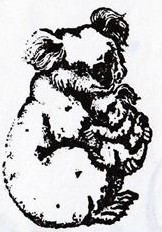The Journey of the Soul – Anavah 1
The Journey of the Soul 1
Part 1
אֲדֹנָי שְׂפָתַי תִּפְתָּח וּפִי יַגִּיד תְּהִלָּתֶךָ
A-dnai sifatai tiftach, ufi yagid tehilatecha—
G‑d, open my lips, so that my mouth can declare Your praise.
When do we become aware that there actually is a journey for each and every soul?
It is awesome to observe this journey in those we care about and in our own lives. I have witnessed this journey from beginning to end in some souls that I cared deeply for.
אֱלֹהַי נְשָׁמָה שֶׁנָּתַתָּ בִּי טְהוֹרָה הִיא
My G-d, the soul You Placed within me is pure
אַתָּה בְרָאתָהּ אַתָּה יְצַרְתָּהּ אַתָּה נְפַחְתָּהּ בִּי וְאַתָּה מְשַׁמְּרָהּ בְּקִרְבִּי
You Created it, You Formed it, You Breathed it into me. And You Preserve it within me. The Schottenstein Edition Siddur For Weekdays with an Interlinear Translation Artscroll page 27
In Bereishit (Genesis), we learn that each of us is created in the image of G-d (Genesis 1:27). Just as G-d Breathed life, nishmat chayim (נִשְׁמַת חַיִּים, breath of life), into Adam (Genesis 2:7), each one of us has a neshamah (נְשָׁמָה), a soul that is an essential gift of the Divine
The middah of anavah (humility) in mussar, is not defined as being so humble that you disappear; rather, it is about having all of your character traits in balance so that the inner light of the soul shines pure and clear as originally intended. Rabbi Barry H.Block, The Mussar Torah Commentary: A Spiritual Path to Living a Meaningful and Ethical Life (p.3- 4).
Anavah is neither low self-esteem nor weakness. To have anavah means that you recognize that your strengths come from something bigger than you, and that you gratefully use those abilities to serve others. To have anavah means to fill your rightful space, no more, no less.
Rav Kook said, Anavah is associated with spiritual perfection. When humility effects depression it is defective; when it is genuine it inspires joy, courage, and inner dignity.
Bamidbar (Numbers) 12.3
וְהָאִישׁ משֶׁה עָנָו מְאֹד מִכֹּל הָאָדָם אֲשֶׁר עַל פְּנֵי הָאֲדָמָה
And the man Moses was very humble, more than any other men which were upon the face of the earth. Bamidbar (Numbers) 12.3
The Torah states that Moses’ humility was greater than all other men. However HaShem displayed His great humility when He Decided to create our worlds.
The word Tzimtzum attemps to explain this. The word Tzimtzum means constriction and refers to the process by which G-d Withdrew His Light in order to create the universe. For further explanation see The Tree Of Life translated by Donald Wilder Menzi and Awe Padeh pages xxxviii, pages 13-14. Also see Inner Space by Rabbi Aryeh Kaplan page 120.
Alan Morinis defines humility as Limiting oneself to an appropriate amount of space while leaving room for others.
Before the universes were created all that existed was the Light of Ein Sof ( The Eternal Light of HaShem). G-d pulled inward, contracting in order to make space for Creation. This is Tzimtzum.
If the Creator made room for us how can we not make room for each other?

Blessings and Peace
Rebbetzin Revi
